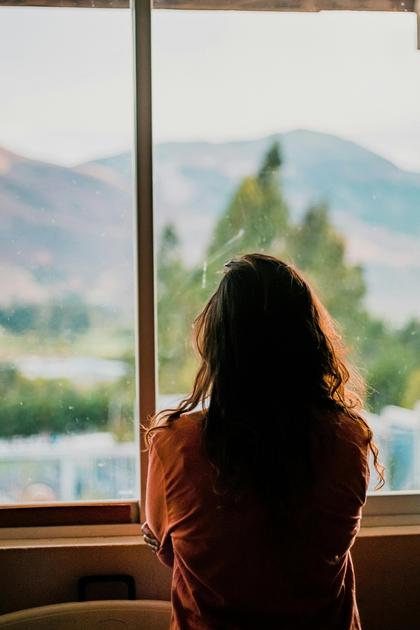Have you ever found yourself tossing and turning at night, with a mind racing due to anxiety? Many women, especially those over 30, silently struggle as anxiety disrupts their sleep patterns, leaving them fatigued and overwhelmed during the day. Understanding the connection between anxiety and sleep is crucial for finding relief and restoring balance in our lives. In this article, we will explore effective strategies to address this common issue and help you reclaim restful nights.
The Silent Struggle: Women and Anxiety
Anxiety is often an invisible burden that many women carry, especially those over 30. It sneaks in during quiet moments and dominates our thoughts, often feeling like a whisper that becomes a roar. For women, this struggle can lead to feelings of isolation. The societal pressures to balance work, family, and personal well-being can amplify this anxiety, leaving women feeling overwhelmed and under-supported.
How Anxiety Affects Your Sleep Quality
When anxiety strikes, sleep often takes the biggest hit. The racing thoughts and persistent worry can keep us tossing and turning long into the night. This not only leads to frustration but also results in a cycle of fatigue and irritability during the day. Sleep should provide a restorative escape, not a battleground of restless thoughts.
Recognizing the Symptoms of Sleep Disturbance
For many women, recognizing the symptoms of sleep disturbance is the first step toward reclaiming restful nights. Common signs include:
- Difficulty falling asleep: Tossing and turning as your mind races can be a sign of anxiety.
- Frequent awakenings: Waking up multiple times can be frustrating, often caused by overwhelming thoughts.
- Mornings filled with fatigue: Waking up feeling unrefreshed is common for those dealing with anxiety-induced sleep disturbances.
The Impact of Hormonal Changes on Anxiety
As women age, hormonal changes can significantly influence anxiety levels. Fluctuations in estrogen and progesterone can lead to heightened feelings of anxiety and disrupt sleep patterns. Understanding this connection is crucial in addressing both anxiety and sleeping issues. Women must navigate these changes with care, recognizing how hormonal shifts impact mental health.
Effective Relaxation Techniques Before Bedtime
Incorporating relaxation techniques into your nightly routine can create a tranquil environment conducive to sleep. Consider these methods:
- Deep breathing exercises: Focusing on your breath can help quiet your mind.
- Gentle yoga or stretching: Physical movement focuses your body away from anxiety and calms the nervous system.
- A warm bath or shower: This simple act can soothe your body, easing tension.
Creating a *personal nighttime ritual* can signal to your body that it is time to wind down. The goal is to cultivate a sense of peace before sleep.
Creating a Sleep-Friendly Environment
The right environment can make all the difference. To foster a sleep-friendly atmosphere, try:
- Minimizing light: Dark curtains can create a calming space.
- Turning off screens: The blue light from devices can hinder melatonin production, making it hard to sleep.
- Keeping a comfortable temperature: A cool room can promote better sleep quality.
As you adjust your environment, consider how important comfort is in your journey toward better sleep.
Nutrition’s Role in Sleep and Anxiety
What we eat can hugely impact our sleep and anxiety levels. Incorporating foods rich in magnesium, zinc, and omega-3 fatty acids can promote relaxation. A well-balanced diet not only helps maintain stable energy throughout the day but also supports emotional and mental well-being. Assess your nutritional habits and recognize how they may be affecting your sleep.
The Importance of Mindfulness and Meditation
Mindfulness and meditation can be powerful tools against anxiety. Taking just a few minutes each day to focus on the present moment can help clear your mind of intrusive thoughts. Techniques such as guided meditation, progressive muscle relaxation, or even mindful walking can reconnect you with your body and promote calmness. Remember, even small investments in mindfulness can lead to significant improvements in your daily life.
Seeking Professional Help: When to Reach Out
It’s essential to recognize when it’s time to seek professional help. If anxiety feels unmanageable or is severely impacting your sleep, talking to a therapist may provide valuable insight and support. It’s crucial to prioritize mental health, just as you would your physical health. There is no shame in seeking help or guidance; many women are in the same boat.
Empowering Yourself: Steps Toward Better Sleep
Empowerment starts with small, daily actions. Implementing the techniques discussed can pave the way for significant changes in your anxiety and sleep quality. Discovering what works for you is key. Therefore, understand that you are not alone. Many women deal with similar challenges, and many have found relief through a supportive community.
As you work through these strategies, remember that it’s completely okay to reach out for support. If you are curious about how many women are finding solutions without heavy medications, see here how many women are solving this without heavy drugs.
It’s possible to improve your sleep and manage anxiety through compassionate self-care and solid strategies. You deserve restful nights and peaceful days. Remember, each day is a step towards better mental health and well-being.







